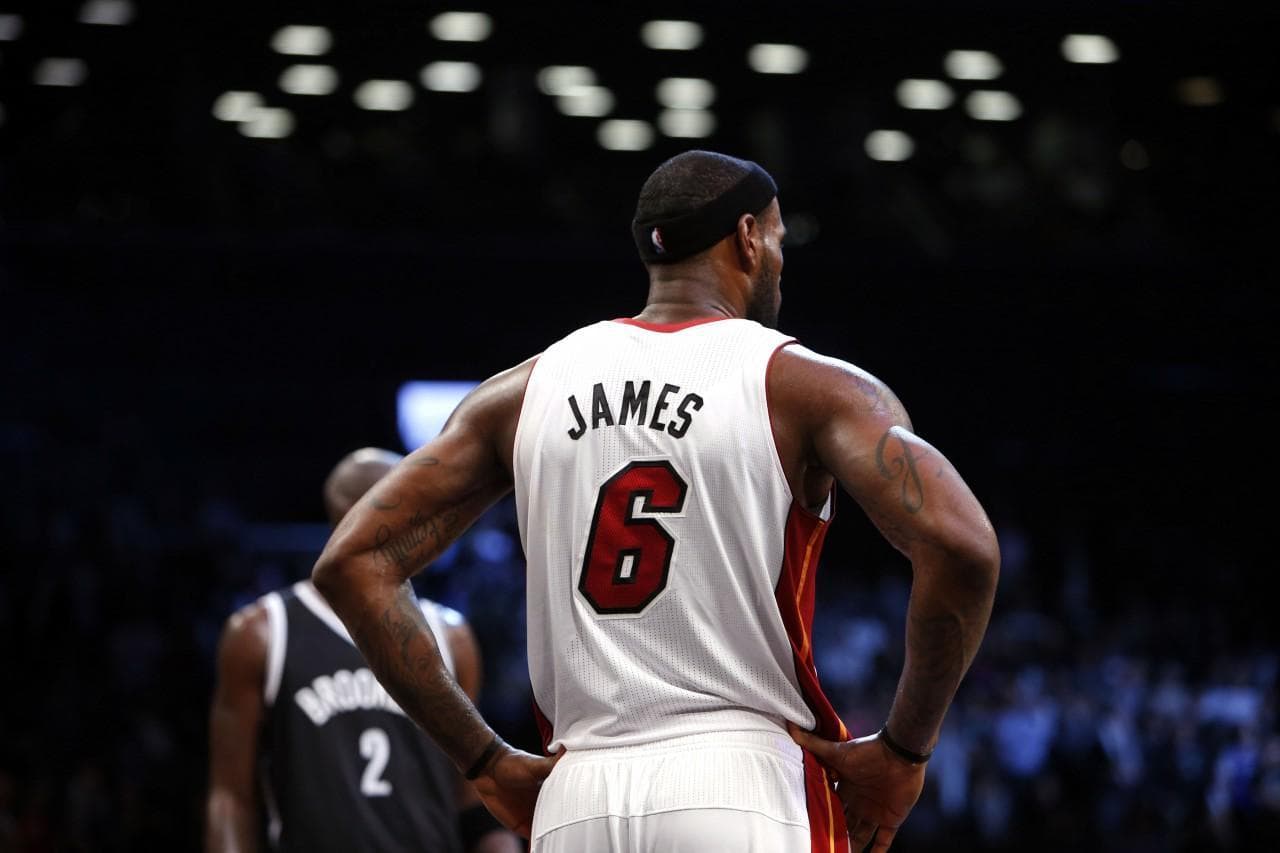Advertisement
In Depth
Can ZIP Codes Predict NBA Success?
Resume
Writing for The New York Times, Seth Stephens-Davidowitz has recently come up with some NBA-related statistics that would surprise even people who know everything there is to know about minutes played, points scored, rebounds, and fouls given. Stephens-Davidowitz joined Bill Littlefield to discuss his findings.
BL: Your most recent research has to do with the backgrounds of the players in the NBA. You took on the stereotype that the league was filled with athletes like LeBron James who grew up in poverty. What did the numbers tell you about that?
SSD: Basically, the better environment you had [was] measured a lot of ways. You're in a wealthier county, you have two parents at birth, your mom is not a teenager. All these kind of indicators make you significantly more likely to make the NBA. So coming from a background like that of LeBron James — poor single mother in the inner-city of Akron, Ohio — is a big disadvantage towards making it to the NBA.
BL: You suggest that having "a relatively prosperous upbringing" gives youngsters aspiring to play in the NBA a couple of distinct advantages. One of them is cognitive. One of them is physical. Tell us about those.
SSD: One of them is actually what economists call non-cognitive skills. It's things like persistence, trust, motivation, self-regulation. Economists have found recently that this is probably the biggest advantage of coming from an advantaged background. You build these skills like trust and persistence. Economists tend to give attention to how this really helps you in school, make it to college, etc. When you think about it, they are, if anything, as important if not more important in sports. If you don't trust your coaches, if you don't trust your teammates, if you're not persistent, if you can't regulate your emotions — you're going to have a real hard time making it in team sports. And there are many examples of people from difficult backgrounds who their sports career kind of flames out. They fight with coaches. They get kicked off teams. I talk about Doug Wrenn in the piece. He came from a very similar background as LeBron James, only four years earlier, was also a very highly regarded recruit. He got in fights with, I think, Lorenzo Romar at Washington and [coach Jim] Calhoun at Connecticut and was kicked off the teams. This is really a classic symptom of coming from a less privileged background.
BL: And the physical advantage?
SSD: The physical advantage is a little bit surprising. It's height. Economists have found recently really strong evidence that good early environments, good nutrition, prenatal care, good healthcare--all these things, especially in the first couple years, are crucial for how tall you end up. In the United States, the average man shot up from 5'6" to 5'10" in only about 40 or 50 years because nutrition got so much better. We were a wealthier country; healthcare improved. Still in poorer parts of the United States, in some rural areas, the healthcare is not good, awareness about nutrition, things like that aren't so good. If you lose an inch from that as an adult man, that is a huge disadvantage for making the NBA. Losing an inch makes you almost half as likely to make it to the NBA.
BL: So every inch smaller your chances are cut in half.
SSD: Yeah, basically throughout the height distribution.
BL: Does all this mean that the coaches and sports writers that claimed that middle class kids aren't sufficiently hungry to work hard enough to make the NBA are just flat wrong?
SSD: I think it's an open question whether that factor even exists. Whether you are hungrier, more motivated, more driven if you come from a bad background. Michael Jordan came from a middle-class background, two parent home, very stable environment and he certainly found a drive and a motivation in him that was among the best ever. So I think that's really an open question. But even if there is this extra motivation, if you are hungrier or come from a tougher background and you want to escape it, that's outweighed on average by the other factors--the better non-cognitive skills, and the better trust of people, height advantage. All these other things far outweigh any advantage in hungriness that you might get.
BL: It's interesting to me that you begin and end your article with references to LeBron James. Ultimately, how did the circumstances of his childhood fit into your research?
SSD: This is kind of on my mind because after he won his championship, he had this famous quote. You know, 'I'm LeBron James. I'm from the inner city of Akron, Ohio. I'm not even supposed to be here.' I remember I was on Twitter and everyone was so pissed at him. A lot of people don't like him, you know The Decision and everything. They think that he is kind of cocky and arrogant. And he's not supposed to be here, well he was on the cover of magazines from the age of 16. And how can he make that claim? Then you look and compare that to Michael Jordan his background, Kobe Bryant, middle class or upper-middle class [background]. You know when you look at this research and all the disadvantages that come from coming from a difficult background like LeBron James, it just makes his accomplishments that much more remarkable. So I wanted to point that out.
This segment aired on November 9, 2013.